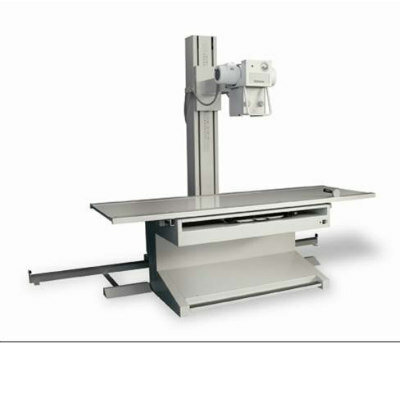New Google Cloud Medical Imaging Suite Makes Imaging Healthcare Data More Accessible
|
By MedImaging International staff writers Posted on 06 Oct 2022 |

Medical imaging is a critical tool used to diagnose patients, and there are billions of medical images scanned globally each year. Imaging data accounts for about 90% of all healthcare data1 and, until now, these complex images have been highly dependent on humans to read. In addition, the number of images continues to grow, increasing the workload for radiologists and other healthcare professionals tasked with interpreting these images for clinicians and patients. Now, a new industry solution makes imaging healthcare data more accessible, interoperable and useful.
Google Cloud (Sunnyvale, CA, USA) enables the development of AI for imaging to support faster, more accurate diagnosis of images, increased productivity for healthcare workers, and improved care access and outcomes for patients. Google Cloud has announced its new Medical Imaging Suite that addresses common pain points organizations face in developing AI and machine learning models, and uses this to enable data interoperability. The components of the Medical Imaging Suite include:
Imaging Storage: Cloud Healthcare API, part of the Medical Imaging Suite, allows easy and secure data exchange using the international DICOMweb standard for imaging. Cloud Healthcare API provides a fully managed, highly scalable, enterprise-grade development environment and includes automated DICOM de-identification. Imaging technology partners include NetApp for seamless on-prem to cloud data management, and Change Healthcare, a cloud-native enterprise imaging PACS in clinical use by radiologists.
Imaging Lab: AI-assisted annotation tools from NVIDIA and MONAI help automate the highly manual and repetitive task of labeling medical images, and Google Cloud also offers native integration with any DICOMweb viewer.
Imaging Datasets & Dashboards: Organizations can use BigQuery and Looker to view and search petabytes of imaging data to perform advanced analytics and create training datasets with zero operational overhead.
Imaging AI Pipelines: Using Vertex AI on Google Cloud can accelerate development of AI pipelines to build scalable machine learning models, with 80 percent fewer lines of code required for custom modeling.
Imaging Deployment: Finally, the Medical Imaging Suite offers flexible options for cloud, on-prem, or edge deployment to allow organizations to meet diverse sovereignty, data security, and privacy requirements - while providing centralized management and policy enforcement with Google Distributed Cloud, enabled by Anthos.
Privacy and security are of the utmost importance in all aspects of Google Cloud's Medical Imaging Suite. Through the implementation of Google Cloud's reliable infrastructure and secure data storage that support HIPAA compliance - along with each customer's layers of security, privacy controls and processes - customers are able to protect the access and use of patient data. Google Cloud's ecosystem of delivery partners provides expert implementation of services for Medical Imaging Suite to help healthcare and life sciences organizations deploy at scale.
Hackensack Meridian Health (Edison, NJ, USA), a network of healthcare providers, is beginning to use the Medical Imaging Suite to de-identify petabytes of images with future plans to build AI algorithms to predict metastasis in patients with prostate cancer, a life-threatening outcome disproportionately affecting Black men in the U.S.
"We are working towards building AI capabilities that will support image-based clinical diagnosis across a range of imaging, and be an integral part of our clinical workflow," said Sameer Sethi, SVP and chief data and analytics officer at Hackensack Meridian Health. "Google Cloud's imaging capabilities, including standardized storage and de-identification, are helping us unlock the value of our imaging data so clinicians and researchers are equipped with digitized decision support that fits into their clinical workflow. Google's Medical Image Suite is also fundamental to us applying AI and machine learning to this data to predict and prevent disease, helping to save more lives."
Hologic, Inc. (Marlborough, MA, USA) has developed the first CE-marked digital cytology platform for laboratories, which combines a new AI algorithm for cervical cancer screening with advanced volumetric imaging technology. The platform helps cytologists and pathologists identify precancerous lesions and cervical cancer cells in women. Next, Hologic plans on expanding the platform's capabilities using the Medical Imaging Suite.
"We've partnered with Google Cloud to use the Medical Imaging Suite to enhance our current Genius Digital Diagnostics System," said Michael Quick, vice president of Research and Development, Innovation at Hologic. "By complementing our expertise in diagnostics and Al with Google Cloud's expertise in AI, deep learning, and its cloud-based technologies for imaging storage, we're evolving our market-leading technologies to improve laboratory performance, healthcare provider decision-making, and patient care."
Related Links:
Google Cloud
Hackensack Meridian Health
Hologic, Inc.
Latest Imaging IT News
- Global AI in Medical Diagnostics Market to Be Driven by Demand for Image Recognition in Radiology
- AI-Based Mammography Triage Software Helps Dramatically Improve Interpretation Process
- Artificial Intelligence (AI) Program Accurately Predicts Lung Cancer Risk from CT Images
- Image Management Platform Streamlines Treatment Plans
- AI-Based Technology for Ultrasound Image Analysis Receives FDA Approval
- AI Technology for Detecting Breast Cancer Receives CE Mark Approval
- Digital Pathology Software Improves Workflow Efficiency
- Patient-Centric Portal Facilitates Direct Imaging Access
- New Workstation Supports Customer-Driven Imaging Workflow
Channels
Radiography
view channel
Novel Breast Imaging System Proves As Effective As Mammography
Breast cancer remains the most frequently diagnosed cancer among women. It is projected that one in eight women will be diagnosed with breast cancer during her lifetime, and one in 42 women who turn 50... Read more
AI Assistance Improves Breast-Cancer Screening by Reducing False Positives
Radiologists typically detect one case of cancer for every 200 mammograms reviewed. However, these evaluations often result in false positives, leading to unnecessary patient recalls for additional testing,... Read moreMRI
view channel
PET/MRI Improves Diagnostic Accuracy for Prostate Cancer Patients
The Prostate Imaging Reporting and Data System (PI-RADS) is a five-point scale to assess potential prostate cancer in MR images. PI-RADS category 3 which offers an unclear suggestion of clinically significant... Read more
Next Generation MR-Guided Focused Ultrasound Ushers In Future of Incisionless Neurosurgery
Essential tremor, often called familial, idiopathic, or benign tremor, leads to uncontrollable shaking that significantly affects a person’s life. When traditional medications do not alleviate symptoms,... Read more
Two-Part MRI Scan Detects Prostate Cancer More Quickly without Compromising Diagnostic Quality
Prostate cancer ranks as the most prevalent cancer among men. Over the last decade, the introduction of MRI scans has significantly transformed the diagnosis process, marking the most substantial advancement... Read moreUltrasound
view channel
Deep Learning Advances Super-Resolution Ultrasound Imaging
Ultrasound localization microscopy (ULM) is an advanced imaging technique that offers high-resolution visualization of microvascular structures. It employs microbubbles, FDA-approved contrast agents, injected... Read more
Novel Ultrasound-Launched Targeted Nanoparticle Eliminates Biofilm and Bacterial Infection
Biofilms, formed by bacteria aggregating into dense communities for protection against harsh environmental conditions, are a significant contributor to various infectious diseases. Biofilms frequently... Read moreNuclear Medicine
view channel
New SPECT/CT Technique Could Change Imaging Practices and Increase Patient Access
The development of lead-212 (212Pb)-PSMA–based targeted alpha therapy (TAT) is garnering significant interest in treating patients with metastatic castration-resistant prostate cancer. The imaging of 212Pb,... Read moreNew Radiotheranostic System Detects and Treats Ovarian Cancer Noninvasively
Ovarian cancer is the most lethal gynecological cancer, with less than a 30% five-year survival rate for those diagnosed in late stages. Despite surgery and platinum-based chemotherapy being the standard... Read more
AI System Automatically and Reliably Detects Cardiac Amyloidosis Using Scintigraphy Imaging
Cardiac amyloidosis, a condition characterized by the buildup of abnormal protein deposits (amyloids) in the heart muscle, severely affects heart function and can lead to heart failure or death without... Read moreGeneral/Advanced Imaging
view channel
New AI Method Captures Uncertainty in Medical Images
In the field of biomedicine, segmentation is the process of annotating pixels from an important structure in medical images, such as organs or cells. Artificial Intelligence (AI) models are utilized to... Read more.jpg)
CT Coronary Angiography Reduces Need for Invasive Tests to Diagnose Coronary Artery Disease
Coronary artery disease (CAD), one of the leading causes of death worldwide, involves the narrowing of coronary arteries due to atherosclerosis, resulting in insufficient blood flow to the heart muscle.... Read more
Novel Blood Test Could Reduce Need for PET Imaging of Patients with Alzheimer’s
Alzheimer's disease (AD), a condition marked by cognitive decline and the presence of beta-amyloid (Aβ) plaques and neurofibrillary tangles in the brain, poses diagnostic challenges. Amyloid positron emission... Read more.jpg)
CT-Based Deep Learning Algorithm Accurately Differentiates Benign From Malignant Vertebral Fractures
The rise in the aging population is expected to result in a corresponding increase in the prevalence of vertebral fractures which can cause back pain or neurologic compromise, leading to impaired function... Read moreIndustry News
view channel
Bayer and Google Partner on New AI Product for Radiologists
Medical imaging data comprises around 90% of all healthcare data, and it is a highly complex and rich clinical data modality and serves as a vital tool for diagnosing patients. Each year, billions of medical... Read more



















